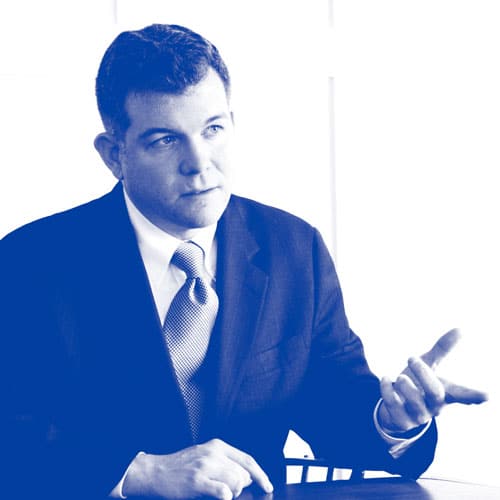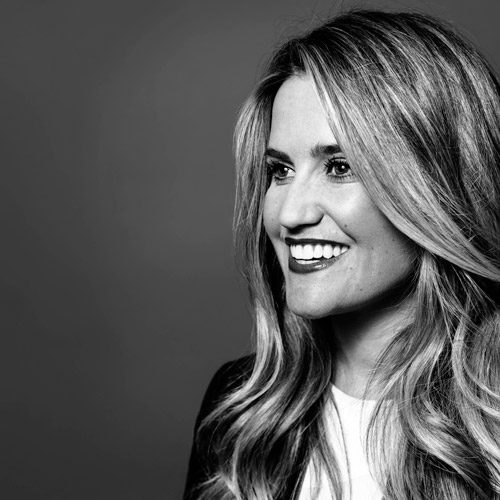When Aileen Wilkins moved into her new role at H&R Block about four years ago, she was given an opportunity to select her title for her position as the head of human resources for the international tax preparation company.

She decided on chief people officer. “It is all about human beings at the end of the day,” Wilkins says. “It was a more authentic way to articulate what really happens. Human beings power organizations. People bring their whole selves to work, and it is our job to fully engage them in order to achieve the greatest degree of organizational success.”
Wilkins grew up in a large family and likes to say she gained her first human resources experience while navigating relationships with her siblings and other relatives. That’s why this career seemed like a perfect fit for her while majoring in business, and it is where she has spent the last twenty-five years of her career, including nine years at H&R Block.
With more than 10,000 retail tax offices in the United States and another 1,700 abroad, filing more than 24 million tax returns each year, there are a lot of people for Wilkins and her HR team to help navigate their careers.
To keep everything in line, the company—under CEO Bill Cobb, who took over in 2011—has been reinforcing its energies, company culture, and values, which can be summed up in the phrase “We do the right thing.”
Wilkins says that the core value of integrity has been enduring, but the bigger challenge has been a call to action for how H&R Block delivers services and a shift to a more high-ambition culture versus status quo.
“Whatever your results were last year, beat them. Whatever the competitor is doing, do better,” Wilkins says. “It’s setting ambitious goals to begin with and then meeting those commitments.”
Rewards and recognition have been one way to help get the staff on board with the changes. During a quarterly town hall meeting, Cobb hands out CEO awards for both good behaviors and results to hold up as a model for the rest of the company.
Wilkins has also helped the company get rid of processes that were slowing the company down on the path to success. For example, the performance management system that traditionally assigned a numerical score to employees has been eliminated.
“We felt that the ratings were actually suppressing the high performance we had envisioned for the organization,” Wilkins explains. “We’ve gone to a more agile coaching model so managers and employees can have more productive conversations about what associates need to work on.”
For a company like H&R Block, with so many seasonal employees having face-to-face interactions with the clients, Wilkins says it is even more important that cultural shifts trickle down to every employee—a job she says is never really complete. “It’s very difficult to change culture,” Wilkins admits. “Where I think it’s easy to fail is to think you’re done. Your commitment to change really needs to be ongoing.”
So how does Wilkins get a message that resonates in the corporate office to matter to every office in the company? Persistence. “The key to success here is tenacity and continual vigilance,” she says. “You communicate it once; you communicate it seven times; you communicate it twenty times. Employees need to understand their roles and how they can behave in ways that move the company in the right direction.”
Wilkins and her team of seventy in the human resources department are running a number of pilot programs in addition to the core initiatives to find out how they can best increase business results, including transformation efforts designed to better motivate the workforce.
The team atmosphere present throughout H&R Block is something Wilkins says she loves about the company and that is reflected in her own leadership style. “I believe good ideas come from many places,” she says.
Now, cultural fit is a top priority when Wilkins is looking to fill a position. “Alignment with the core values of the company is non-negotiable,” she says. Onboarding at H&R Block, or the thirty-day period after being hired, is a crucial time, according to Wilkins. Human resources plays a key role in selection and training of all associates, especially leaders.
However, Wilkins not only sees her job as important when hiring employees or during times of cultural shift, but also throughout each team member’s career. “HR is a career navigator for our employees,” she says. “Good HR organizations help employees interpret and understand the strategy of the company.”
At the end of the day, Wilkins concludes that it all comes back to people. “That career choice I made many years ago turned out to be the right one,” she says. “Every day is a new challenge for me, and I feel like I’m making a difference for the organization and for the people that work for us.”

